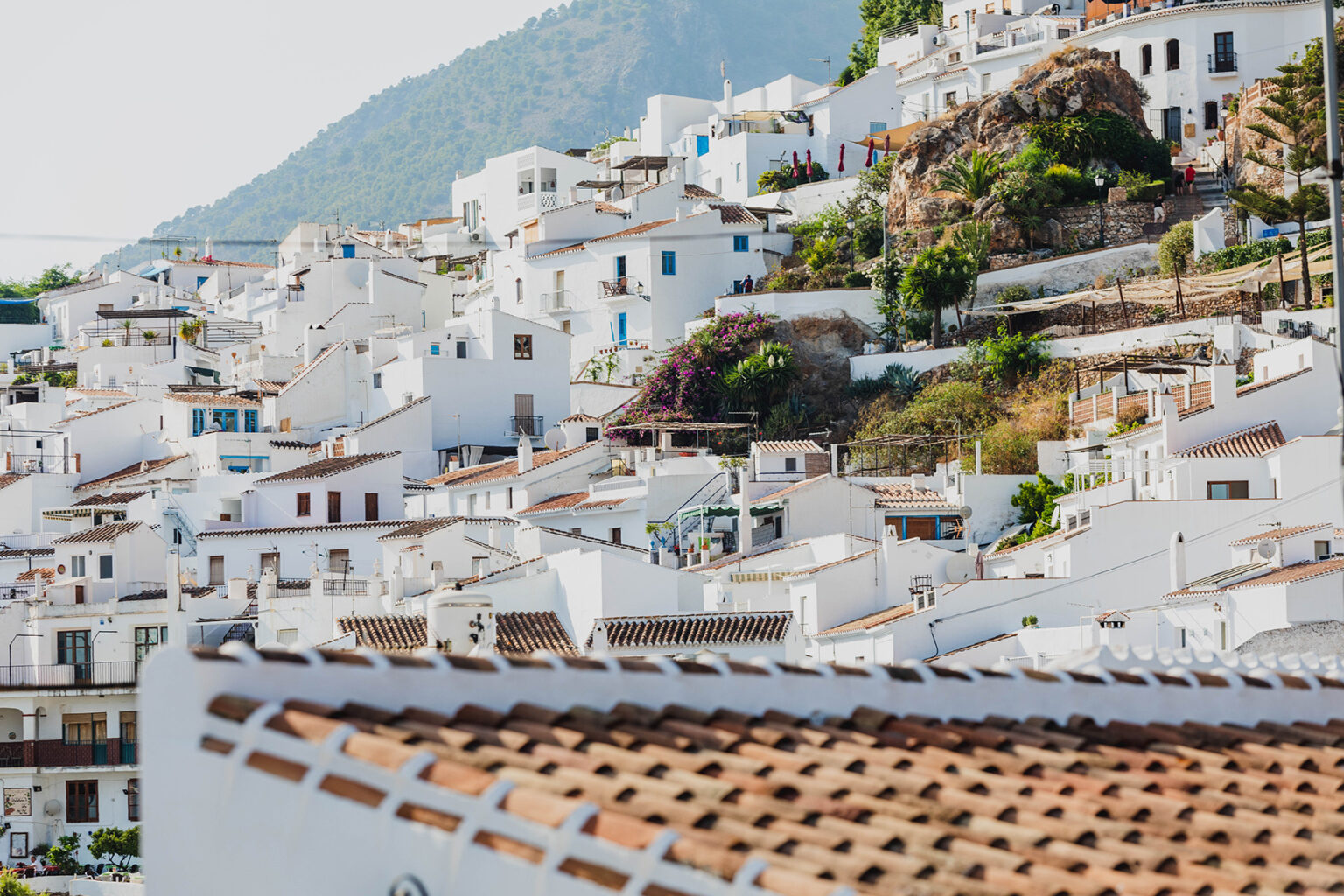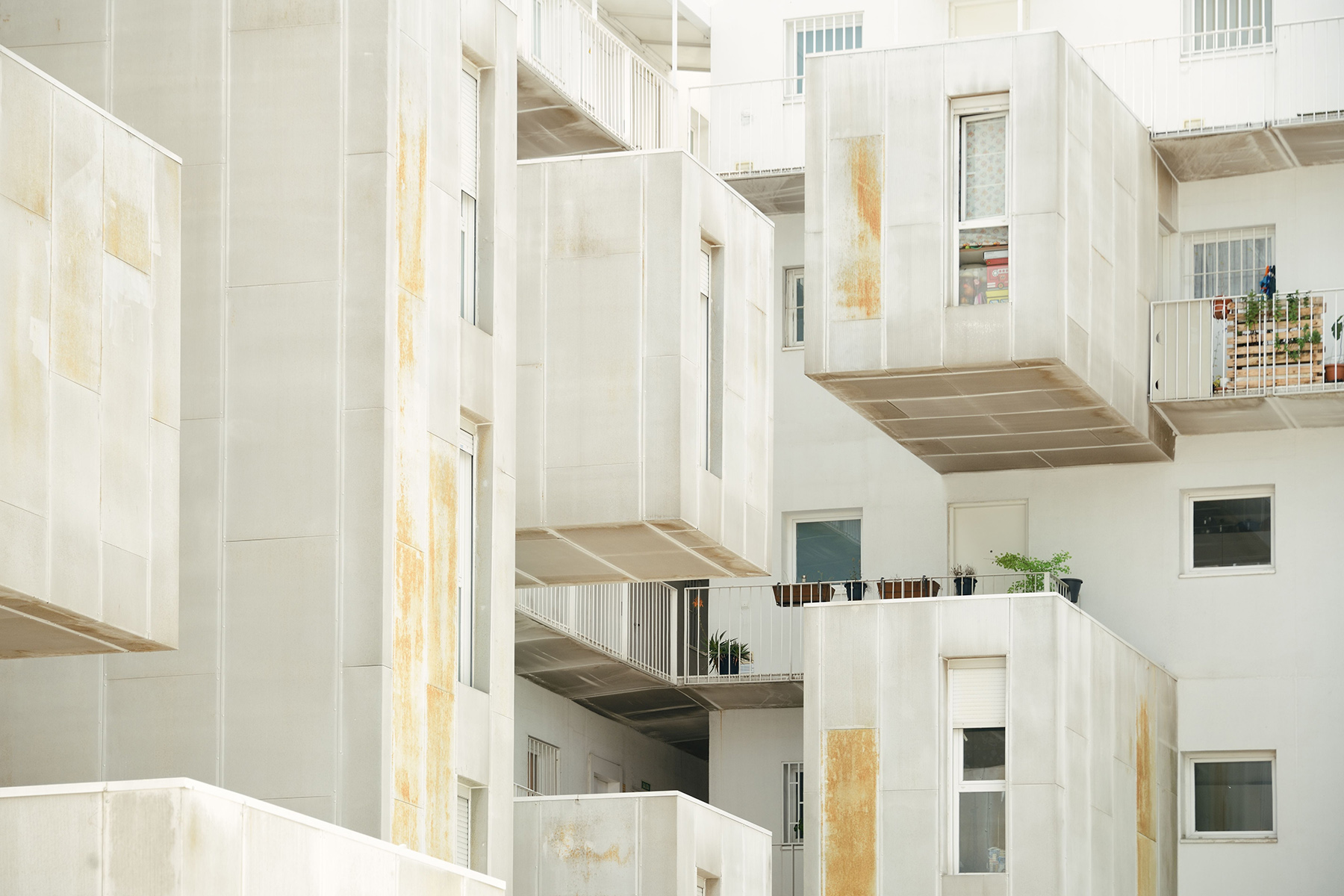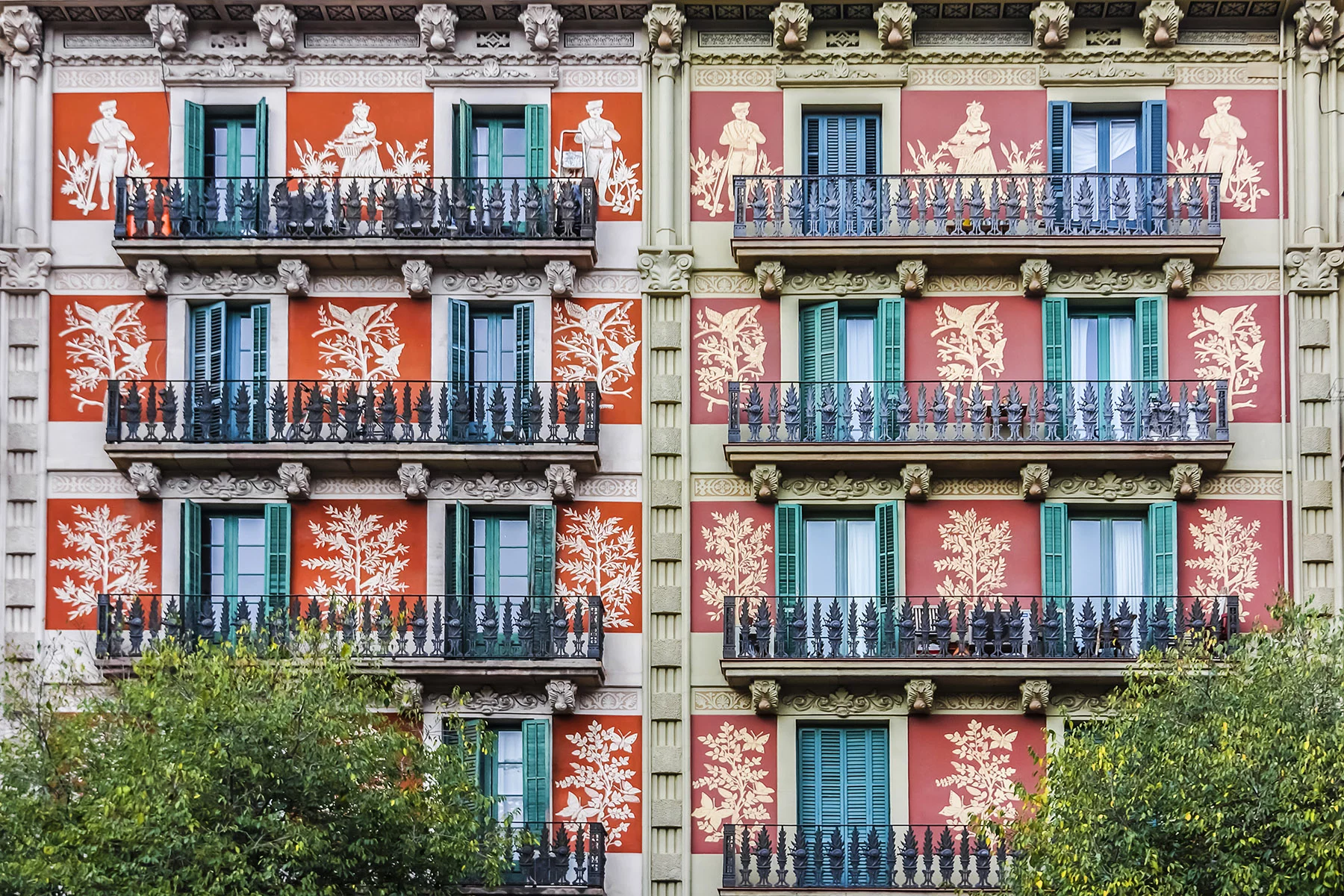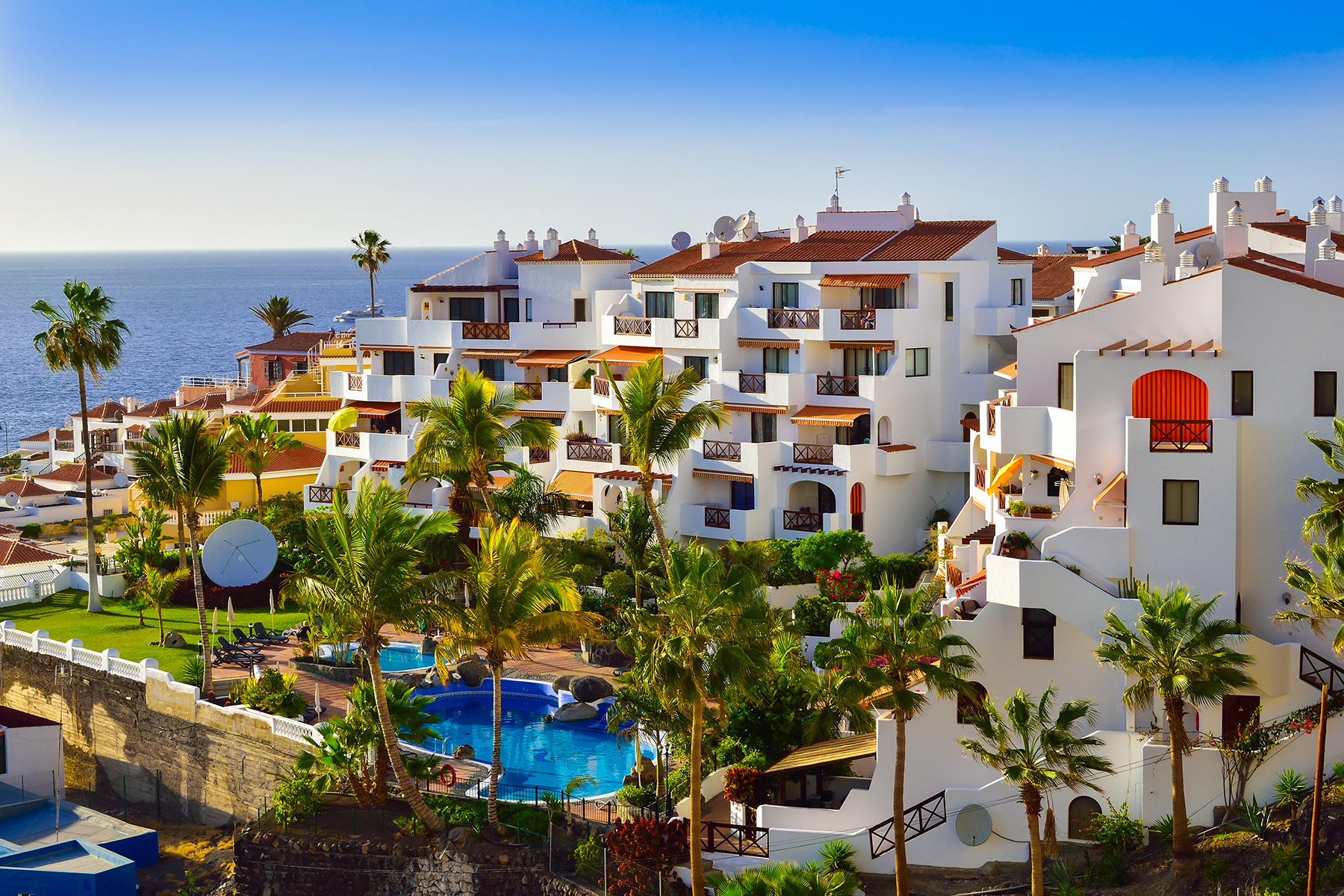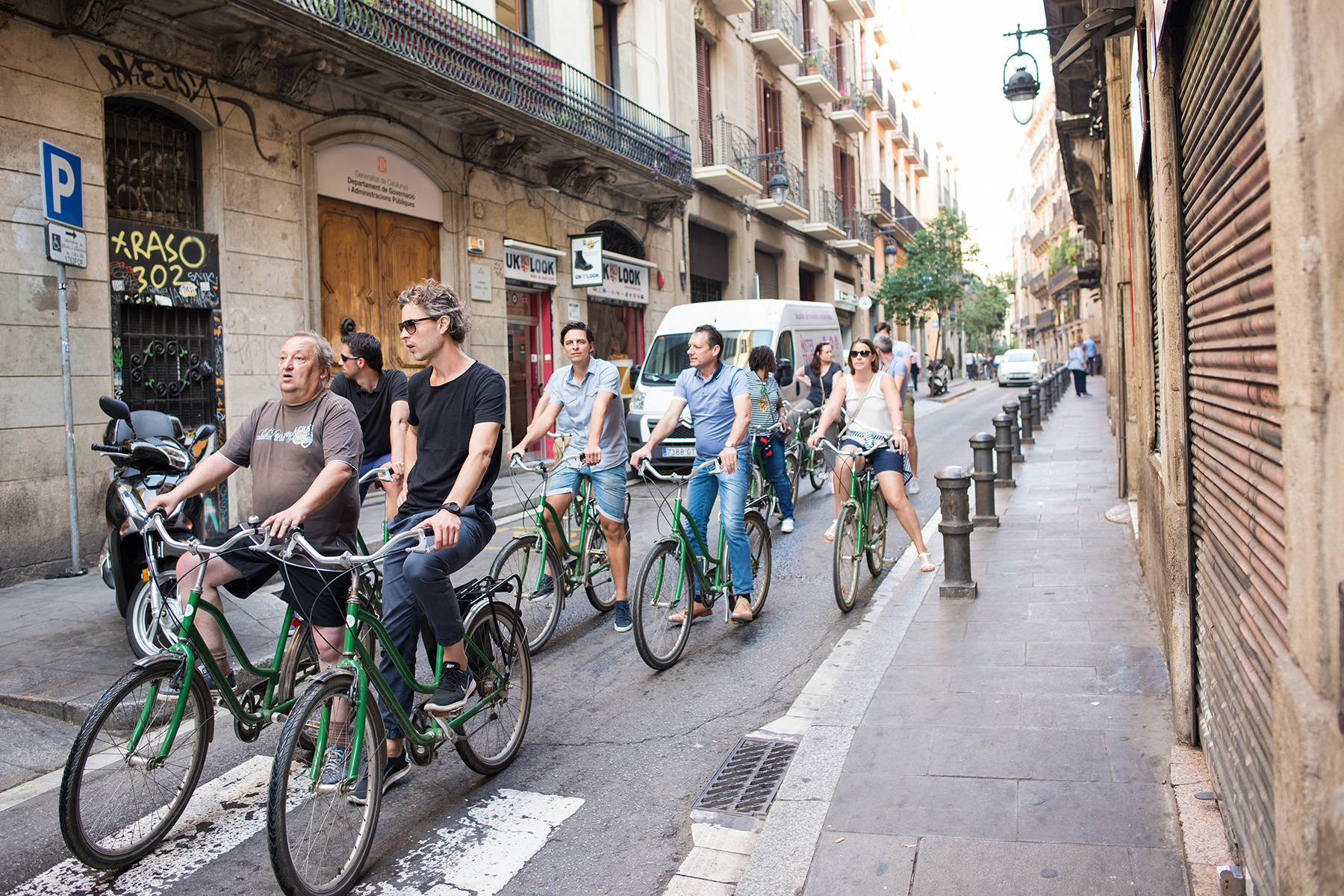Once you’ve figured out how to move to Spain as an expat, you’ll need to look for a place to live. Spain is known for its affordability, compared to many other EU countries. But the cost of housing in Spain can be vastly different depending on the location and type of home.
Learn how to go about renting and buying housing in Spain by reading the following sections:
BCN Life
Make your move to Spain seamless with BCN Life. This team of American relocation experts can help you start your dream life in Spain, with services including real estate purchases and rentals, assistance with visas, and advice on living in Barcelona. Get in touch with BCN Life for a stress-free move to Spain
Overview of housing in Spain
As of 2019, over 75% of Spanish people were homeowners. That’s relatively high compared to the OECD country average of 60%. However, the percentage of households renting their homes is rising – in 2018, nearly 18% of households were renting, compared to 16% in 2013.
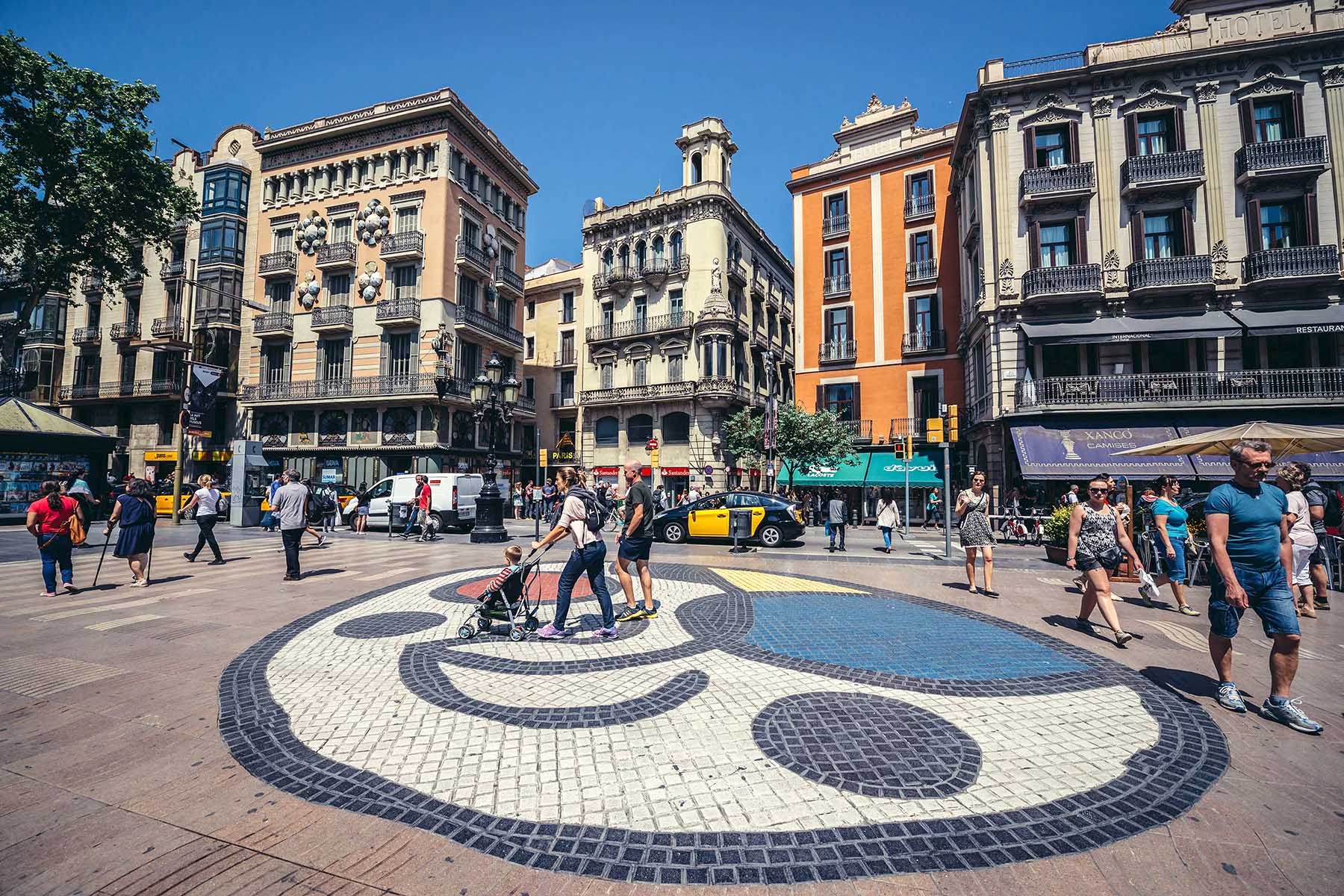
You will encounter a few different options during your search for housing in Spain:
- Apartments and flats (apartamento or piso) – Most Spanish residents live in apartment blocks, especially in cities such as Madrid and Barcelona.
- Townhouses and terraced houses (casa adosada) – These homes are built in rows and are generally multi-level. They don’t have much private outdoor space except perhaps a balcony or terrace. However, they may include a garage, shared gardens, and even a communal pool.
- Detached house (casa, chalet, or villa) – This is a less common type of housing, especially for people living in cities. That said, you can find many detached houses along the Spanish coastline. They often have a pool and sit on a sizable plot of land.
- Urbanizations (urbanizaciones) – These housing communities include apartments, townhouses, and villas. They also have other amenities such as shopping facilities, transportation, and sports complexes. You’ll find them primarily around Spain’s resorts and touristic regions.
- Country homes or farmhouses (fincas) – If you are interested in a large property and more rural living, you might consider a finca. These properties are primarily inland and range from small buildings to large country estates. Although you might find the prices attractive, bear in mind that the properties often require a significant investment for remodeling and upkeep.
Spain’s housing market
Housing prices in Spain have been rising quickly over the past decade, just as elsewhere in Europe. The average cost went up by 21% between 2016 and 2019, higher than the EU average of 16%. However, this looks to be slowing compared to other countries. Eurostat shows that inflation-adjusted house prices increased by 1.7% in Spain in 2021, compared to 3.7% in Portugal, 11.6% in the Netherlands, and 4.6% in France.
As of July 2021, the average price for a second-hand property in Spain was €1,816/m². That’s still much lower than EU countries such as France (€2,080–€3,680 on average in early 2022). Spain’s Property Appraisal Society (ST Sociedad de Tasación) says that in 2020, the highest average prices were in Barcelona (€2,743 per square meter) and Madrid (€2,630 per square meter). On the other hand, the lowest housing costs are in Lugo (€877/m²) and Badajoz (€896/m²). For an idea of how much you’ll pay in total, the average price for buying an apartment in Spain is €147,000, according to RealAdvisor.
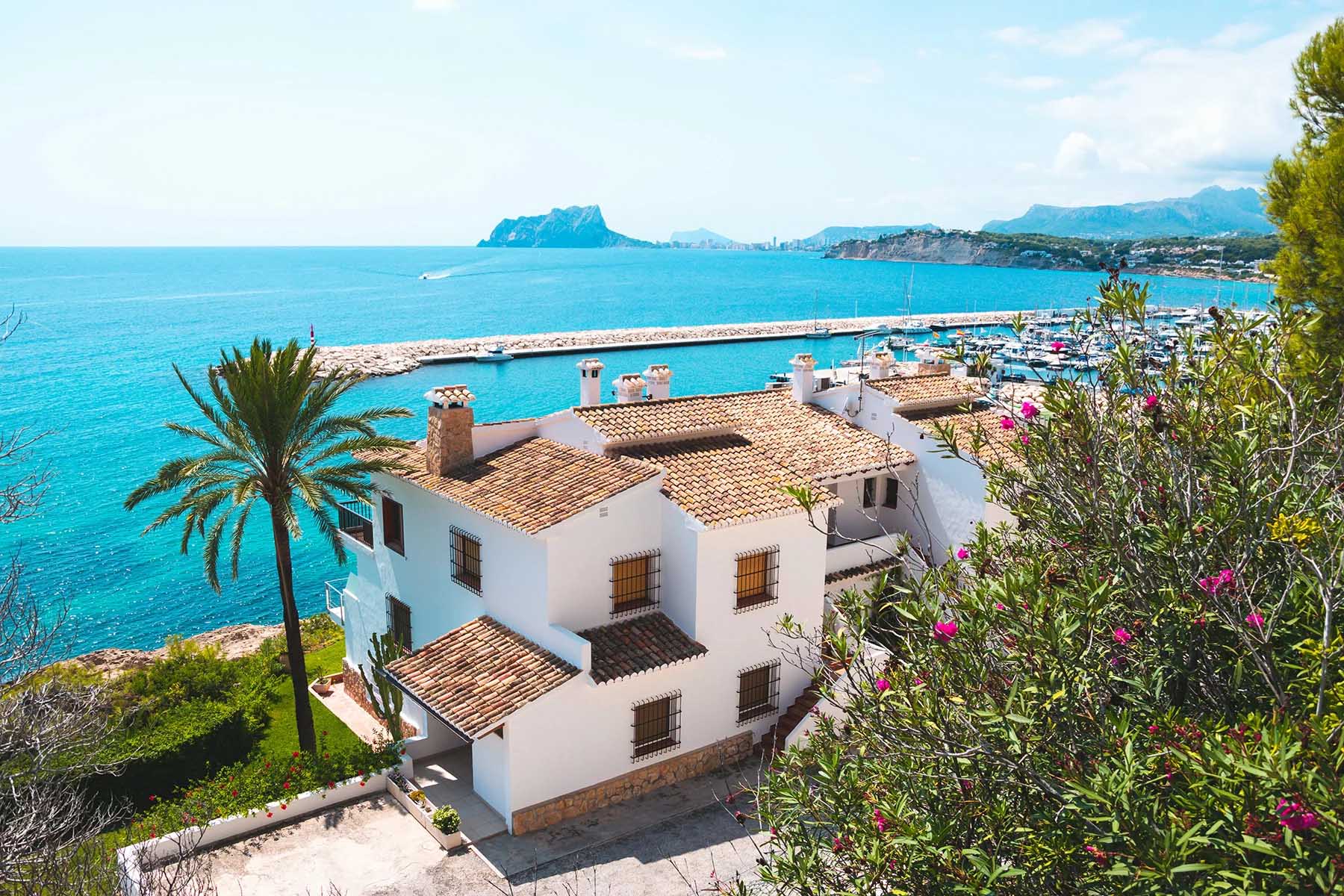
Spain’s rental market is exceptionally lacking compared with the rest of the EU. As a result, rent prices have increased by more than 50% since 2014. Finding an affordable apartment in city centers and popular tourist areas can be challenging. That said, rents have fallen as a result of the COVID-19 pandemic. Renters in Spain can expect to pay over €14 per square meter in Madrid, San Sebastián, and Barcelona. Price survey site Numbeo suggests that a one-bed apartment in Madrid city center will set you back €800–1,300. Meanwhile, you can rent a three-bedroom flat for a similar price on the outskirts, or a one-bed for €650–1,000.
Housing laws and regulations in Spain
The Spanish constitution provides for a right to housing. Spain has many housing regulations, especially related to holiday homes and rentals. Anyone is eligible to purchase housing, or any property, in Spain. All you need is an NIE number (Número de Identificación de Extranjero). This is a unique tax identification number for residents and non-residents.
Rental laws in Spain
Spain has many laws to protect renters’ rights. In 2021, Spain passed sweeping legislation to address the tight and expensive rental housing market. The Ley por el Derecho a Vivienda (Right to Housing Law) allows regional governments to impose rent caps in stressed markets. It also penalizes rental property owners who leave multiple units unrented for long periods.
A rental agreement in Spain (contrato de arrendamiento) is valid, whether verbal or written. Of course, a written contract is a much more secure option. A short-term rental agreement (contrato de arrendamiento de temporada) is for up to a year and is not extendable. A long-term (arriendo de vivienda) rental contract is for 12 months or longer, and you can renew it annually. If you don’t want to continue a one-year rental agreement, you should give notice 30 days before the contract ends.
You can then renew your lease for up to five years if your landlord is a private individual or seven years if a registered company owns the property. Before the end of a five or seven-year rental agreement, you must give two months’ notice if you wish to move out. The landlord must give four months’ notice to end your tenancy. Otherwise, you automatically have the right to stay for up to three more years.

If you end any housing rental contract early, you will likely owe rent for the agreed-upon rental term. The Spanish authorities can hold a landlord legally responsible for shutting off utilities, changing the locks, or otherwise restricting a tenant’s use of the property. Rent prices can increase annually but only within the current national guidelines and not for more than 20% of the initial lease price.
Property purchase and building laws in Spain
If you wish to buy land in a rural area of Spain to build a new home, you should look for property deemed suelo no urbanizable común. This means you may develop the land for a private residence. On the other hand, if you want to build on land in an urban area, you need to buy a suelo urbano (urban plot). These plots have access roads and can hook up to utilities.
You can go to the local town hall to request a certificado urbanístico for the plot you want to buy. This document details the development possibilities of the property. You shouldn’t purchase a plot of land without this certification. In addition, before building on a property, you must secure a building permit from the Town Hall.
Buying or renting in Spain?
People who want to rent housing in Spain will notice few properties available — especially in the larger cities and popular areas. That said, it may be the best option if you’re only planning to live short-term in the country. Spain’s capital gains tax is 19% for non-residents and ranges from 19% to 26% for residents.

On the other hand, buying a house in the country is a great investment, especially while property prices are low.
Your decision to rent or buy housing in Spain should factor in how long you want to live in the country and the additional costs of getting a mortgage and purchasing a home.
Renting in Spain
In Spain, 95% of properties being rented out in the country are owned by private individuals. The remainder is in the hands of large property owners with ten or more properties. As of 2022, regional Spanish governments can impose rent caps on large property owners.
The most common way to find a house or apartment to rent in Spain is through a real estate agent (inmobiliarias) or online portals. Popular sites in Spain for rental property listings are:
- Blueground
- comprarcasa
- HousingAnywhere
- idealista.com
- Nestpick (Furnished Apartments & Rooms (English, Spanish, French, German, Italian)
- Spotahome
- thinkSPAIN
Relocation experts such as BCN Life can also help by guiding you through the process of finding a rental.
After finding rental housing in Spain, you will apply to either the real estate agent or the landlord. You typically need to provide:
- Evidence of employment or ability to pay the rent
- Tax identification number (if you are working)
- Passport or ID
- Personal references
Most landlords require a deposit equal to one month’s rent before moving in. Even though verbal rental contracts are valid in Spain, you should request to have all the rental terms documented and signed.

Social housing in Spain
Social housing in Spain is called Vivienda de Protección Pública (VPP – publicly protected housing). Spain’s approach to social housing differs from most other EU countries in that most of it is provided for owner-occupation rather than rented.
Only around 1.1% of the country’s rental properties are designated for social housing. That’s much lower than other OECD countries. For example, subsidized housing represents nearly 17% percent of rental properties in Britain, 14% in France, and 4% in Italy. For this reason, Spain has dedicated €1 billion of the EU’s coronavirus recovery funds to the country’s social housing sector. Furthermore, Spain has recently made provisions to reserve 30% of units in new housing construction for affordable and low-income public housing.
Eligibility for social housing in Spain can vary depending on where you live and your income level. If you have access to other accommodation, you won’t be eligible. People with disabilities and dependents are given priority for social housing in Spain.
Renting out your property in Spain
Renting out housing that you own in Spain can be lucrative, but it is a heavily regulated business. Rental rules in Spain depend on the property location and the duration of the rental agreement.
Short-term and holiday rentals are for people visiting the area for tourism or work. The rental regulations for these properties vary according to the autonomous region and change frequently. You risk paying steep fines if you don’t comply with the local laws. The local tourism authorities will be your first contact before listing your property as a vacation rental.
You generally need to obtain an official license. Your property must also adhere to certain technical requirements and safety features. As of 2021, all holiday rentals must have an energy performance certificate (Certificado de Eficiencia Energética – CEE). In some areas, you may only rent out your property to visitors for a maximum number of days per year.
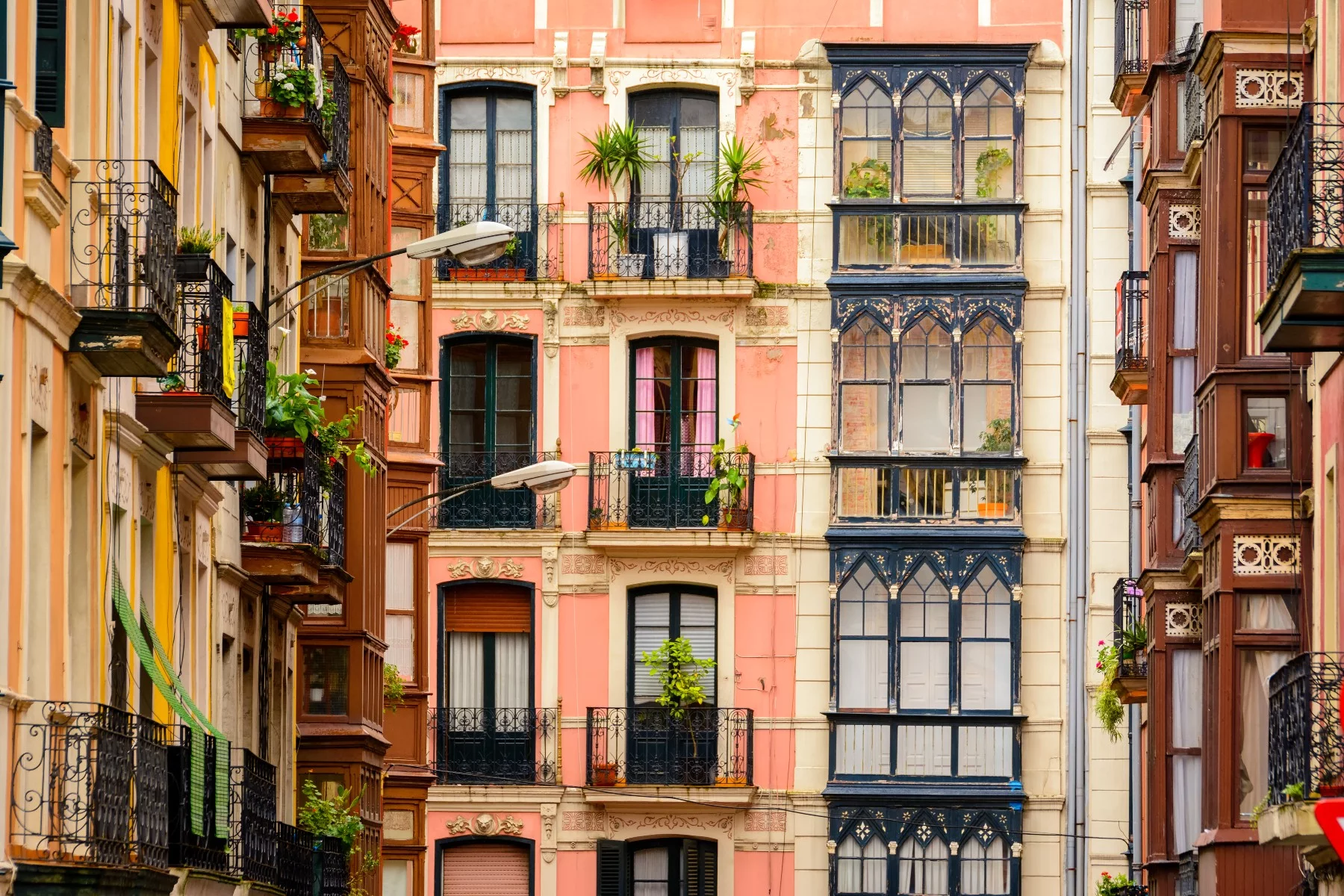
A long-term rental term is for one year or more. A tenant may be able to extend their rental contract for up to five years. As the homeowner, you will have restrictions on accessing and selling the property. You can raise the rent annually, but the increase must be within the current national guidelines and not exceed 20% of the initial lease price. In addition, you must pay for any major repairs. As a landlord, you may only evict tenants if they do not pay the rent, the contract comes to an end, there is no contract (desahucio por precario), or in the case of squatting.
If you rent out your Spanish property, you must declare your rental income on your Spanish taxes. You need to report the income quarterly if you are a non-resident.
Fortunately, Spain is home to professionals who specialize in helping expat landlords manage their properties. For example, BCN Life can help with your rentals in Spain.
Mortgages in Spain
As mentioned, any foreigner has the right to buy a home in Spain. However, before you fall in love with a property, you should first understand your eligibility for a Spanish mortgage and the related costs. When you have an NIE number (Spanish tax identification), you can apply for a mortgage from a Spanish bank. The main Spanish banks are:
- Banco de Sabadell
- Banco Santander
- Bankia
- BBVA
- Caixabank
Banks in Spain offer the same types of mortgages that you’ll find in other EU countries. You can also find expat-focused mortgages provided by international banks and local banks. Handily, Spain also has many international-friendly mortgage brokers, such as Wypo, who can guide you through the entire process.
Buying a home in Spain
Before you buy a home in Spain, you should always take time to understand the market and any unforeseen costs. Many websites and estate agents in Spain also cater to almost every language and nationality. Here are a few popular online platforms:
Once you’ve found a property you like, you’ll usually make an offer through the seller’s estate agent. If this is accepted, you’ll then sign a preliminary contract (contrato privado de compravento) with the seller. You also need to pay a deposit, typically 10% of the purchase price. After finalizing the mortgage, you can sign the contract of sale (escritura de compravento) at a notary. At that point, you need to pay the full sale price, taxes, and other costs. You should also think about insuring your home, even though it is not mandatory.
Selling a home in Spain
The average time to sell a house in Spain in 2020 was around six months. You can sell your property in Spain without the services of a real estate agent, but the bureaucracy can be quite complicated.
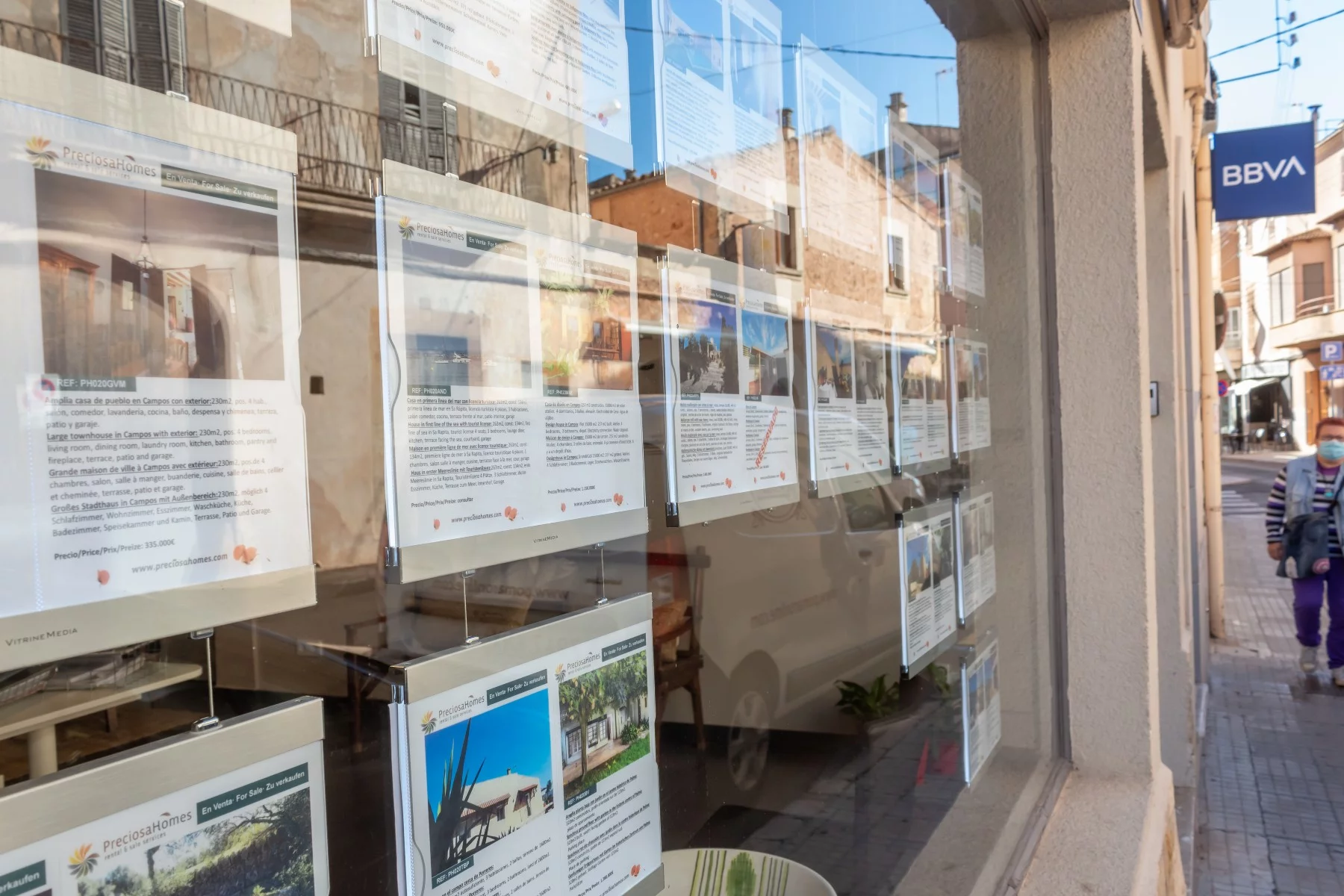
If you decide to use a realtor, it is a good idea to work with real estate agencies or agents registered with the Official College of Real Estate Agents (Colegio Oficial de Agentes de la Propiedad Inmobiliaria). Check that they are a registered company and completely transparent about their commission fees.
Sellers are solely responsible for paying:
- Estate agent fee – around 3-6% of the sale price plus VAT. You’ll pay this fee at the end of the transaction.
- Fee for energy performance certificate – between €150 and €300. You will need the EPC before listing your home.
Whether you are selling the home yourself or with an agent, you can consider the following websites to advertise:
- BCN Life – relocation specialists who also assist expats with their properties
- thinkSPAIN
- Servihabitat
- idealista.com
- Kyero
After you accept an offer on your home
When both parties have agreed on a sale price, the buyer’s solicitor prepares a preliminary contract that the seller and buyer sign. At that time, the buyer makes a deposit — generally 10%. If you change your mind about the sale, you might have to pay double the deposit amount back to the interested buyer. Likewise, if the interested buyer backs out of the sale, they will forfeit the deposit. Finally, you will sign the contracts, the notary will inform the Land Registry of the sale, and you’ll exchange the title deeds. Once the final balance is transferred to the seller, the property is in the hands of the buyer.
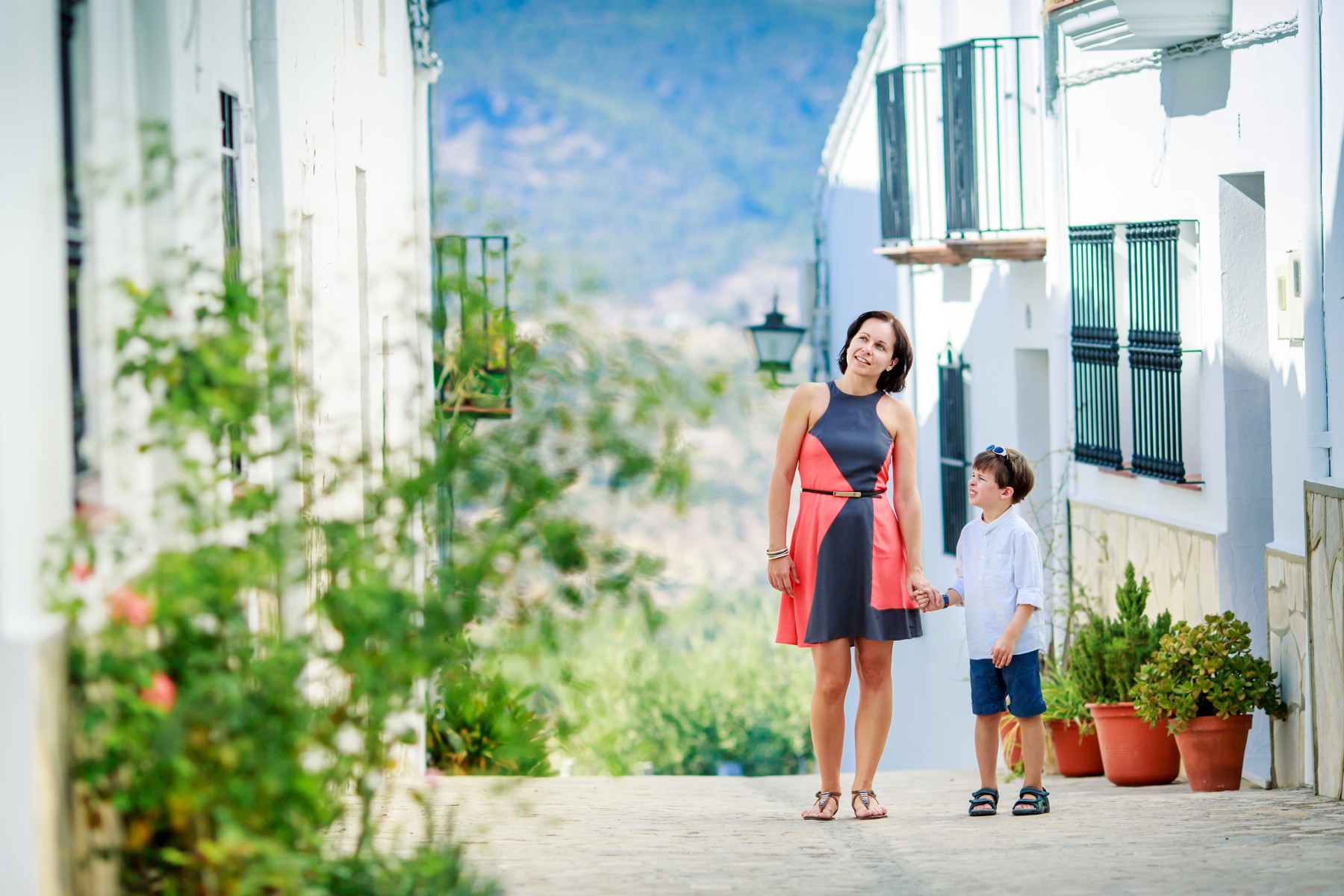
After you sell your home in Spain
In addition to paying the real estate agent’s commission fee, you should be aware that you need to pay tax on the profit you made selling your home in Spain. Capital gains tax (CGT) is calculated based on the difference between the sale price and the price you initially paid for the property. The percentage varies between 19% and 26%, as follows:
- First €6,000: 19%
- €6,000–€50,000: 21%
- €50,000 to €200,000: 23%
- €200,000 +: 26%
- Non-resident: 19%
Sustainable housing in Spain
Private residences are responsible for more than one-fifth of the country’s carbon emissions, so Spain is working to make real estate more environmentally sustainable. In fact, Spain was recently named one of the top ten countries for sustainable properties.
As part of Spain’s COVID-19 recovery plan, the Spanish government is dedicating around €5.8 billion to various building renovation programs that focus on energy efficiency. Seventy percent of the funds will go to housing in Spain with a program called El Programa de rehabilitación energética de edificios (PREE). Property owners may get subsidies for 35% to 100% of the cost of building renovation work, such as installing better insulation, photovoltaic panels, energy-efficient lighting, and heat pumps.
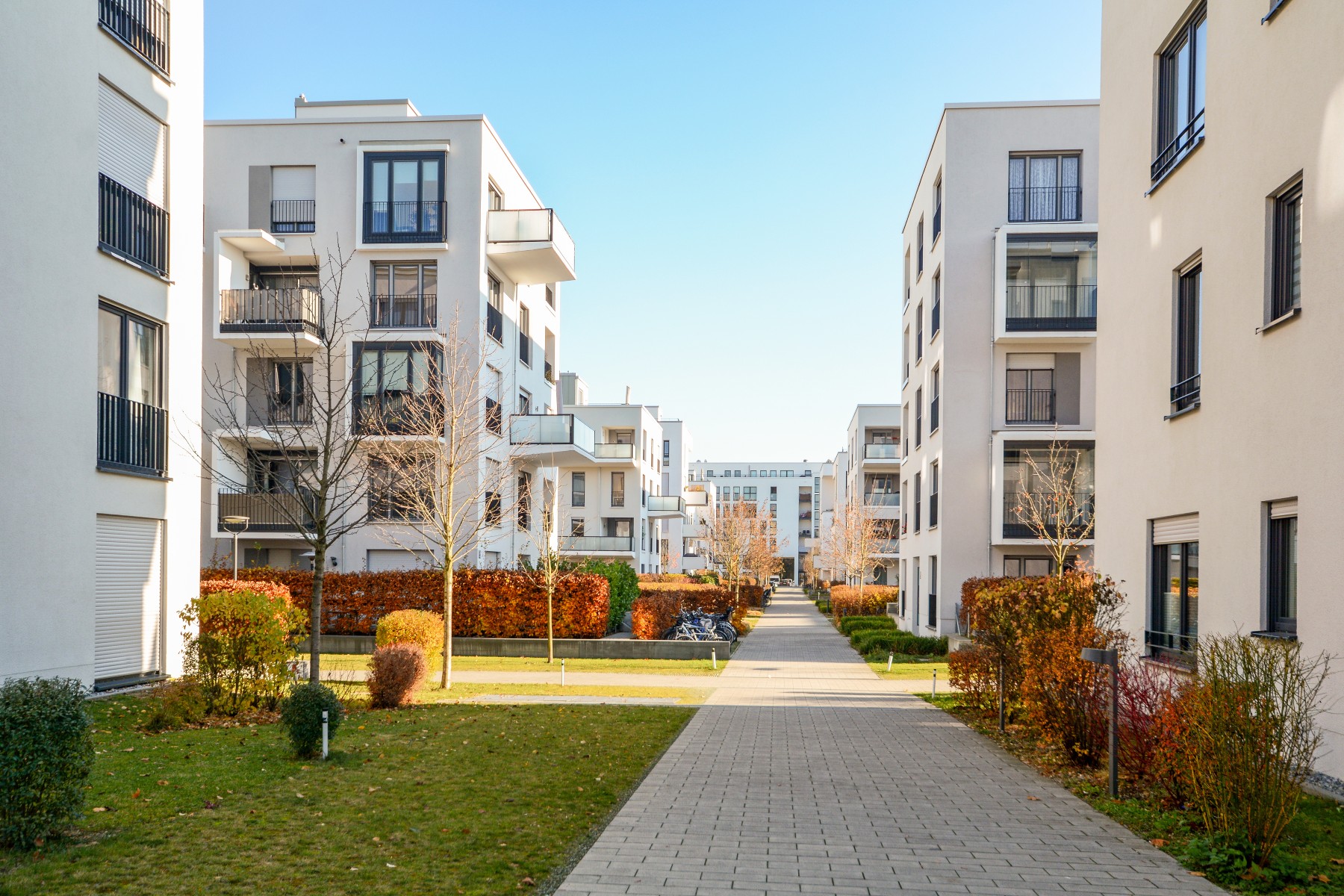
Homes for sale or rent in Spain must have an Energy Performance Certificate (EPC). An assessor examines key items such as insulation, boilers, radiators, windows, air conditioning, etc. The resulting energy efficiency rating ranges from “A” (most efficient) to “G” (least efficient). Renovations eligible for Spain’s new funding must improve the emissions energy rating by at least one letter, and each intervention must result in 10% energy savings.
Building a home in Spain
Most property search websites in Spain enable you to search for land zoned for residential buildings. A real estate agent should also know the ins and outs of buying land. You should keep in mind that, in addition to the cost of materials and construction labor, you need to pay the following estimated costs:
- Architect: 4 to 6% of the material execution budget
- Quantity surveyor: around €5,000 per project
- Safety coordinator: roughly €4,000 per project
- Site studies: €250–750 per study
- Tax on Construction, Installations, and Works (ICIO) and fees: vary in each municipality in Spain but are usually between 3 and 5% of the construction project budget
Of course, the costs and regulations for building a home in Spain depend on the autonomous region where the property is located. Therefore, it is a good idea to get in touch with local experts in home construction.
Useful resources
- Citizens Advice Bureau Spain – for more information on rental law
- National Association of Realtors – details on real estate practices around the world
